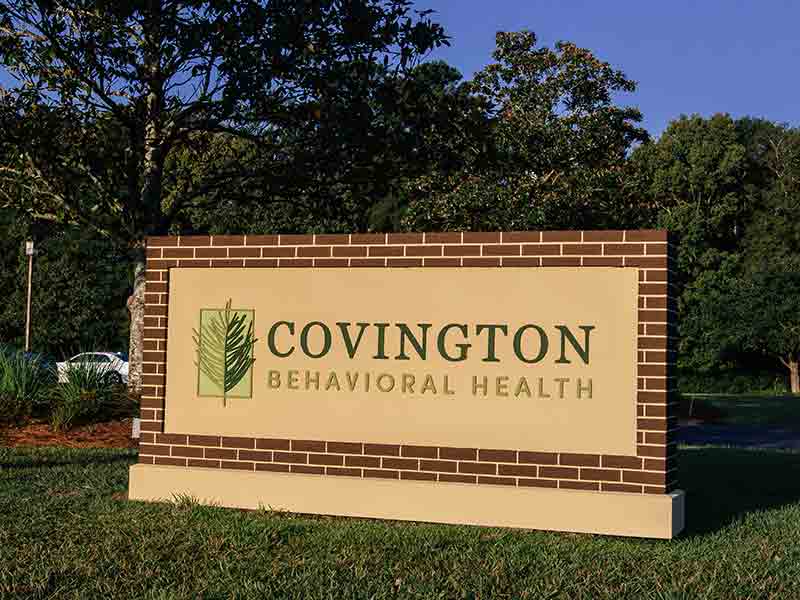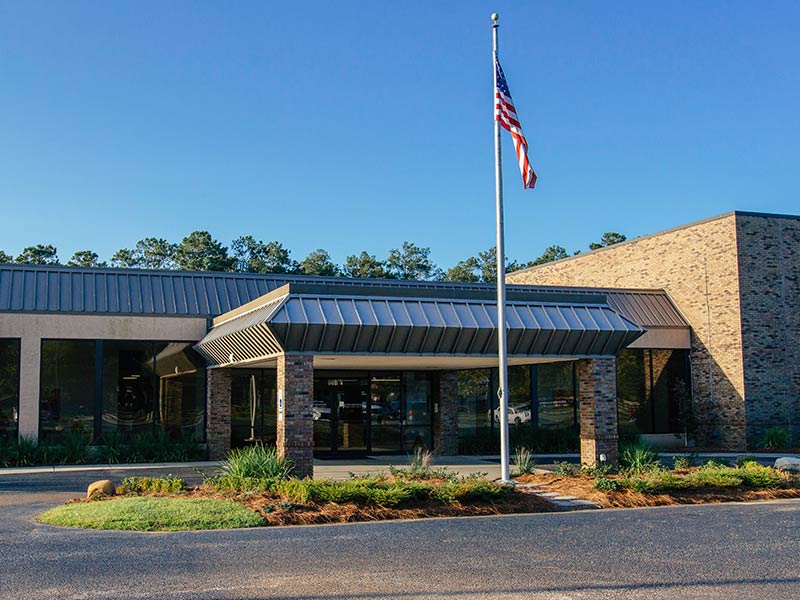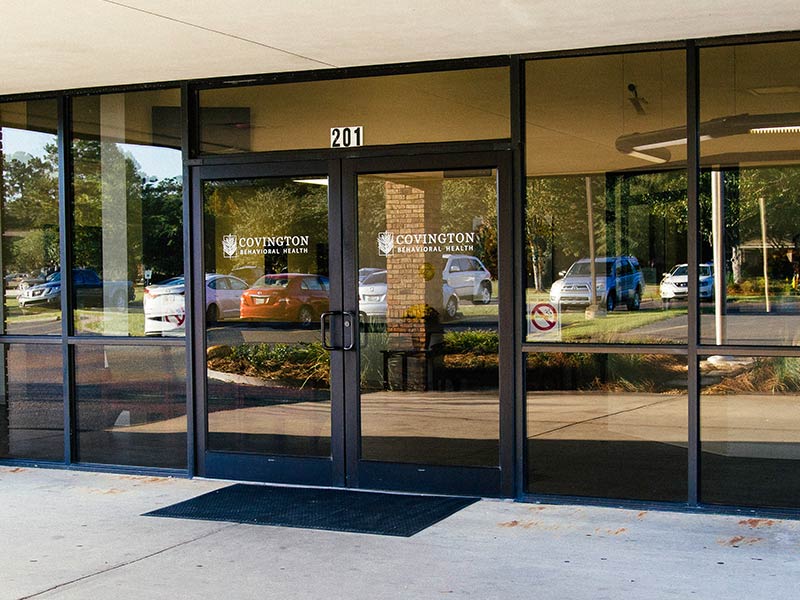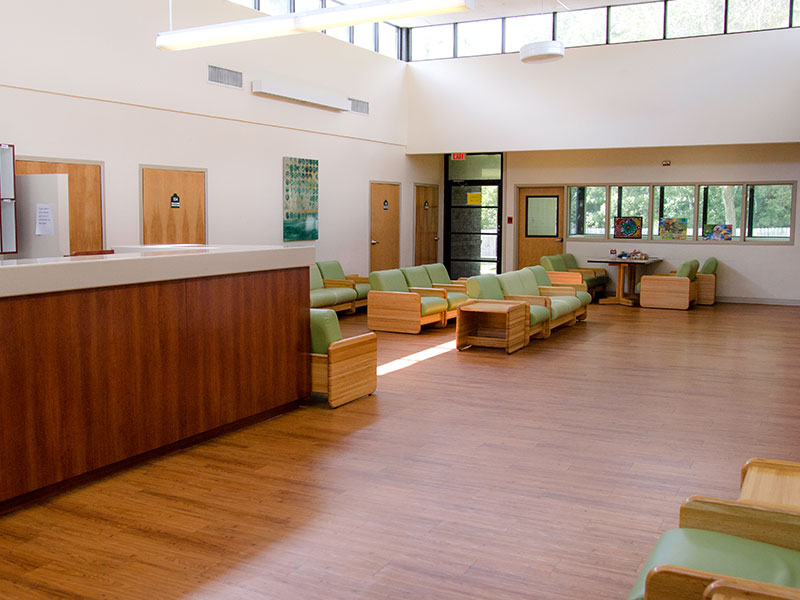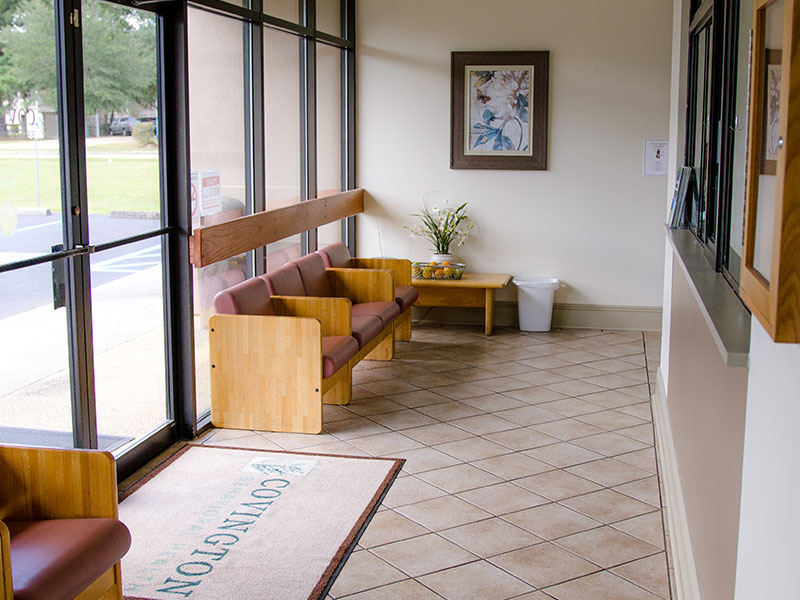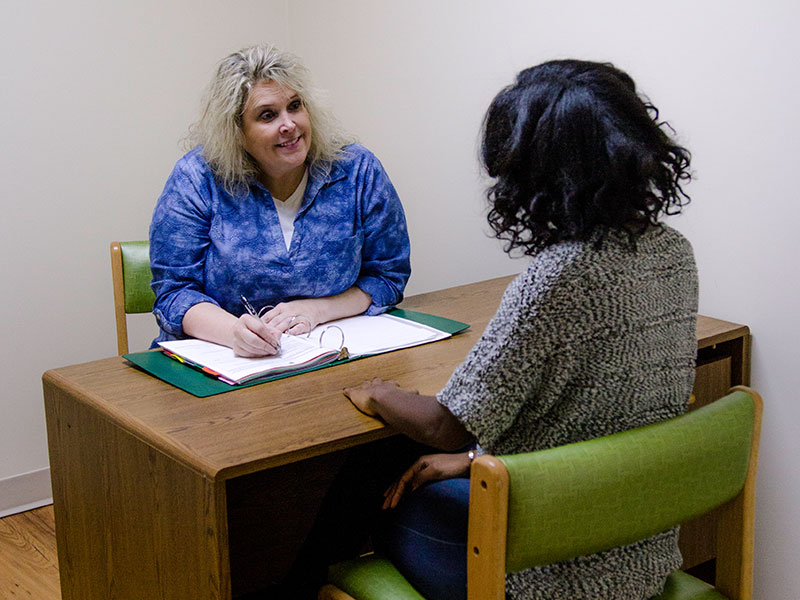At Covington Behavioral Health, individuals can receive expert care delivered by a team of compassionate and experienced professionals. With the help of our center’s dedicated treatment team, it is possible to learn to manage depression symptoms and live a healthier, happier life.
Depression Treatment
Learn more about depression treatment at Covington Behavioral Health in St. Tammany Parish
Depressive disorders are a category of mental health disorders with symptoms such as extreme persistent sadness, reduced energy levels, pervasive hopelessness, and recurring thoughts of death. While depressive disorders are often referred to by the general term depression, the category actually contains a number of distinct disorders. The two most common types of depression are major depressive disorder and persistent depressive disorder. Other types of depression include disruptive mood dysregulation disorder, premenstrual dysphoric disorder, and depressive disorder due to another medical condition. Generally speaking, the distinction between the types of depressive disorders is found in the severity, duration, and cause of symptoms.
All types of depressive disorders can have a profoundly negative impact on an individual’s ability to live a full, productive, and satisfying life. Untreated depressive disorders can become more severe over time; yet with effective treatment at a hospital or center for depression, you can experience significant reduction in symptoms and can make great strides toward managing your remaining symptoms. At Covington Behavioral Health, located in Salt Lake City, we have developed specialized programming that has proved effective at helping adolescent and adult patients who have struggled with depression to experience significantly improved quality of life.
How to Help a Loved One
Helping a loved one get treatment for depression
If someone that you care about has been struggling with depression, you know how distressing this experience can be. What you may not realize, though, is that you can play an important role in helping his or her get the professional treatment at a hospital or center for depression that can lead to immeasurable improvements in his or her life.
First, it is important to understand the reality of depressive disorders. If your loved one has developed depression, then he or she is not merely experiencing a temporary period of melancholy. Depression cannot be cured by thinking positive thoughts or trying harder to “cheer up.” Depressive disorders are mental health problems that require professional treatment from a hospital or center.
To get a firsthand explanation of depression, ask your loved one what he or she has been experiencing. Depending upon the nature and severity your loved one’s symptoms, he or she may or may not be able to adequately describe what he or she is thinking or feeling. However, by listening to your loved one says, noting what he or she describes and what he or she appears incapable of discussing, and paying attention to his or her energy levels, you should be able to get a better sense of how depression has impacted his or her life.
Do not pressure your loved one, but remain an active, constant, and reassuring presence in his or her life. It may take time for your loved one to open up about his or her depression. Keep the lines of communication open so that your loved one knows he or she can rely on you.
Also, you should research depression and the types of treatment centers and hospitals that have helped others whose struggles were similar to what you loved one has been experiencing. Your knowledge of your loved one’s personality combined with your new understanding of the signs and symptoms of a depressive disorder should prepare you to identify treatment centers and hospitals that offer the type and level of care that your loved one needs.
If possible, get a few close friends or trusted family members to help you in your efforts to support your loved one while you research treatment options. Let your loved one know that you are not the only one who cares. Also, if your loved one is resistant to entering a treatment center or hospital, having a few other close people involved may help convince him or her that getting professional help is the right decision.
Remember that residential treatment at a hospital or center may be just one step in the long process of recovering from a depressive disorder. Regardless of what your loved one experiences before, during, and after treatment, plan to be a source of continued support and encouragement.
Why Consider Treatment
Why consider treatment for depression at Covington Behavioral Health in St. Tammany Parish
Untreated depression can impact virtually every aspect of a person’s life. People who have depressive disorders may experience problems in their relationships, struggle in school, withdraw from friends and family members, and have problems getting and keeping a job. These experiences can worsen their symptoms and push them deeper into a pervasive sense of hopelessness and helplessness. Unemployment, financial devastation, and legal problems may result, as can suicidal ideation. Many people who struggle with untreated depression and experience the negative repercussions described in this section turn to alcohol or other drugs as a means to self-medicate or numb themselves to their psychological pain. Of course, this only exposes the individuals to considerable additional physical and psychological harm. However, with the effective professional care that you can receive at Covington Behavioral Health, these negative outcomes can be avoided, and the despair of depression can be transformed into the hope and promise of a healthier tomorrow.
Types of Treatment
Types of depression treatment offered at Covington Behavioral Health in St. Tammany Parish
Covington Behavioral Health is a 104-bed residential treatment center that provides personalized, comprehensive care for adolescents ages 10-17 and adults age 18 and older who have experienced acute changes in their emotional and mental well-being and need psychiatric stabilization.
At Covington Behavioral Health, care for people who have been diagnosed with depressive disorders is provided by multidisciplinary teams of talented and dedicated professionals, including psychiatrists, medical psychologists, nurses, nurse practitioners, social workers, counselors, activity therapists, and mental health technicians. Among the members of our center’s staff who have specialized training are our full-time staff dietitian, social workers who are certified in gerontology, and physicians certified in forensic psychiatry and addictionology.
The care that our patients receive at our center for depression incorporates a variety of treatment techniques and therapeutic modalities, including cognitive behavioral therapy (CBT) and dialectical behavior therapy (DBT). We place a premium on conducting thorough assessments on each patient at our center to ensure that we are able to develop individualized treatment plans that address each person’s specific strengths, needs, and treatment goals.
Each patient’s time at Covington Behavioral Health will be a unique experience based upon his or her specific strengths and needs. Depending upon those unique factors, a patient’s treatment may include the following elements:
Medication management: Some individuals with depressive disorders may benefit from having certain prescription medications incorporated into their treatment plans. Covington patients who meet this description will have the opportunity to meet with our psychiatrist and nursing staff on a regular basis to receive medication management services.
Detoxification: Covington Behavioral Health is not a substance abuse treatment center; however, we do understand that prospective patients may have struggled with substance abuse in addition to their challenges with depressive disorders. To best serve these individuals at our center, we provide detox services for individuals who been abusing alcohol, prescription painkillers, and certain other drugs. After they have rid their bodies of the substances that they have been abusing, detox patients will transfer directly into residential treatment to receive care for their mental health disorders.
Individual therapy: Patients in the inpatient program may meet with a member of our social service staff (LCSW, LMSW, LPC, or PLPC) or nursing staff (RN or LPN) for individual therapy as needed. Individual therapy allows patients to address issues that they may be hesitant to bring up during group sessions, provides them with one-on-one feedback and guidance from experienced professionals, and helps them to develop effective skills for managing the symptoms of a depressive disorder.
Group therapy: Group therapy sessions are fundamental elements of treatment at Covington Behavioral Health. Group therapy provides a structured yet dynamic environment in which participants can share their insights and experiences, learn from the contributions of fellow patients, and practice healthy interpersonal skills such as effective communication, empathy, and giving and receiving support. The following are among the groups that a patient who is being treated for a depressive disorder at our center may participate in:
- Activity groups
- Creative therapy groups
- Dietary groups
- Process groups
- Psychoeducation groups
Group therapy sessions, which are typically offered at least five times during each treatment day at our hospital, are led by nurses, activity therapists, mental health technicians, and members of our social services staff.
Family therapy: At Covington Behavioral Health, we understand that an individual’s struggles with a depressive disorder may impact his or her entire family. With family therapy, loved ones of Covington patients have the opportunity to address how they have been affected by the patient’s mental health problems, learn how to strengthen family bonds and improve intra-familial relationships, and develop the skills that will allow them to provide the best possible support as their loved one continues in recovery following the residential phase of his or her treatment. Family therapy sessions at Covington Behavioral Health are typically conducted by the patient’s case manager and may be scheduled on an as-needed basis or by request.
Discharge planning: We provide robust discharge planning services to ensure that each patient and his or her family has a thorough plan that identifies the referrals, community-based services, and other support services that will put the patient in the best position to maintain and improve upon the progress that he or she made while in treatment at our center for depressive disorders with us.
At Covington Behavioral Health , our ultimate goal is to provide the focused, effective, and personalized care that can improve the quality of life for all who are entrusted into our care. For more information about our services, please do not hesitate to contact us at your convenience. We look forward to answering all of your questions and helping you determine if Covington Behavioral Health is the perfect place for you or your loved one.





